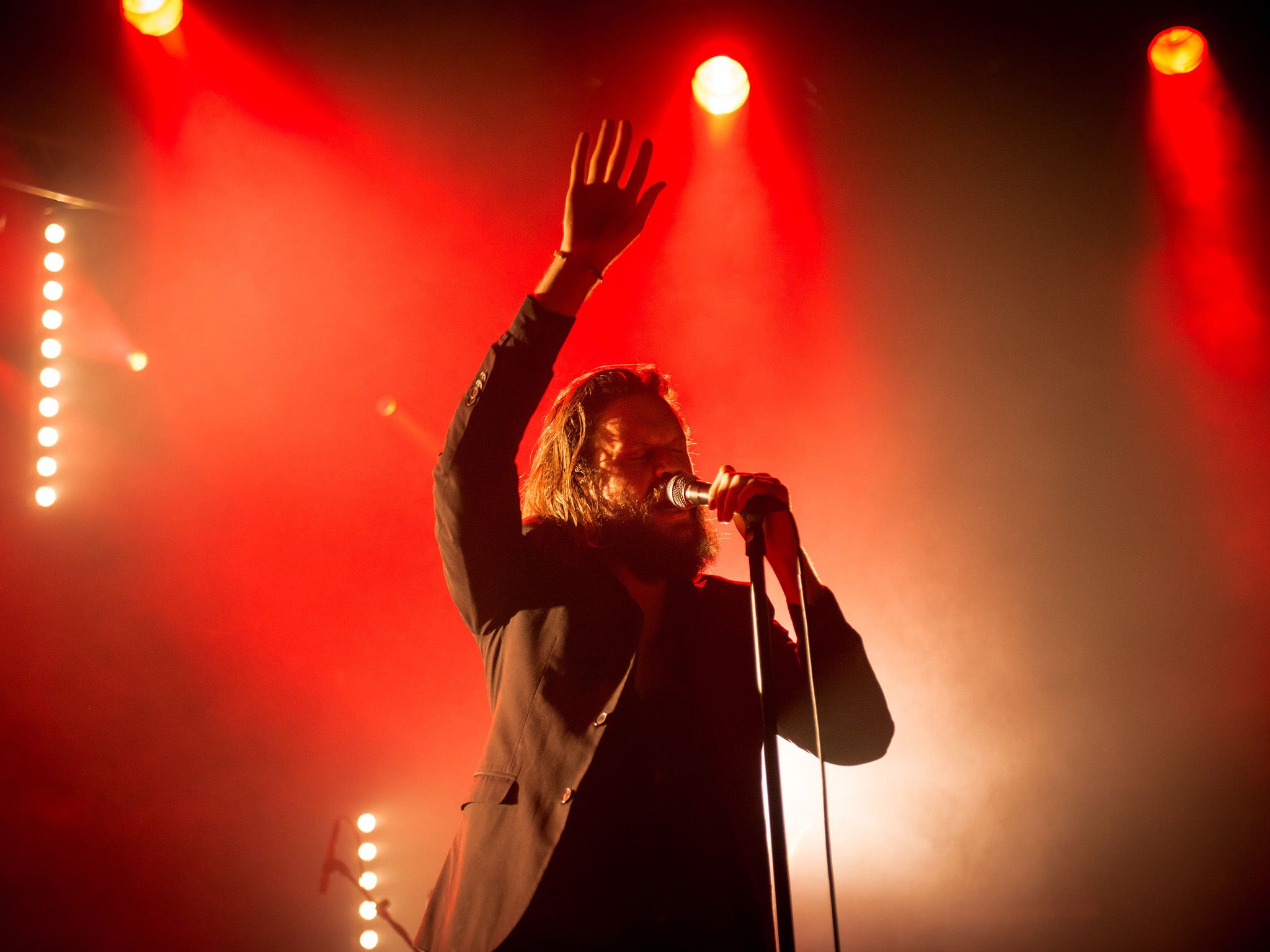Pitchfork Festival Paris, review: Father John Misty stole the weekend
Like a bourbon soaked Jarvis Cocker, the man led the hall astray with a knowing display of extravagance

“I feel like I’m playing to a fucked up prom!” exclaims Deerhunter frontman Bradford Cox during his band’s performance on the opening night of Pitchfork Paris, late season de rigueur festival for alternative, independent music. Whether that was the intention for the influential US website when it founded the European arm of its festival - in an expansive 19th century abattoir, no less - back in 2011 is certainly debatable, but there is no doubt the well-heeled blend of Parisian chic and hipster cool that make up its audience seems in-keeping with the Pitchfork brand: smart, refined, appraising. Not even the recent and controversial sell-out (in all senses of the word) to media company Conde Nast, home to Vanity Fair, seems to have diminished the website’s cachet among the converted.
Of course, there’s none more Pitchfork than Cox himself, a man who collects the site’s coveted Best New Music accolade like a hobby. But as he leads band and audience through his self-contained indie maze, including tracks from brilliant, streamlined new album Fading Frontier, it becomes noticeable how the sort of music Pitchfork has vehemently championed more than any other since its inception in 1995 - often lo-fi, frequently based in alt-Americana, always indier-than-thou - is strangely underrepresented. Instead, in a faultless set-up that places a stage at either end of the grand hall, therefore avoiding acts clashing (take note, UK festivals), we are treated to a weekend full of eclectic, esoteric sounds.
It therefore makes sense that Radiohead frontman Thom Yorke, de facto headliner in Bjork’s absence, presents his rare Tomorrow’s Modern Boxes show on Friday. It is fundamentally the sound of Today’s Modern Thom: together with long-time cohort Nigel Godrich, all of his post-millennium preoccupations - oscillating electronic glitches, clicks, dubs and throbs, scattershot lyrics - are on display as Yorke wriggles and spasms his way through a show that is at turns dense and danceable, claustrophobic and challenging. It’s an immersive world for those able to get past its emotional detachment.
Similarly, Baltimore duo Beach House have essentially stretched one trick - ethereal dream-pop set to slow or even slower - over six albums, but that trick is equivalent to being able to float on air, and their closing Thursday night set is sublime.
Further down the bill there are highlights everywhere. LA-based duo Rhye serve up a beguiling blend of R’n’B grooves, subtle beats and shimmying guitars, all elevated by singer Mike Milosh’s incredible, androgynous voice which acts as an instrument in itself. Run the Jewels, “legitimately high and legitimately drunk” they tell us, are nonetheless incendiary, producing exhilarating hip-hop that’s both socially conscious and ridiculously good-time fun. Hudson Mohawke’s beat-and-rhythm, EDM-spawning hedonism even gets the crowd, reserved by UK standards, losing their mind with a blistering closing night early hours live set.
Perennial Pitchfork favourites do feature. Post-rock behemoths Godspeed You! Black Emperor, apparently oblivious to the fact there’s an audience present, use their epic instrumental soundscapes to make an emotive, apocalyptic racket; Spiritualized crank up their dual garage rock and gospel influences to similarly powerful effect, climaxing with a soaring Come Together, while Battles’ anything-goes take on math-rock remains startlingly original.
Yet it is Father John Misty who steals the weekend. Like a bourbon soaked Jarvis Cocker, the man formerly known as Josh Tillman leads the hall astray with a knowing display of extravagance, all thrusts and limbos and arch charisma. With a whip smart band channelling the full breadth of 70’s rock in tow, the showmanship is backed up by fantastic, sagely witty, unflinchingly honest songs about the vagaries of love: its doubts, its desires, its cynicism, and, ultimately, its redeeming power. It’s a stunning performance on a weekend where Pitchfork Paris proved alternative music to be in the rudest of health.
Join our commenting forum
Join thought-provoking conversations, follow other Independent readers and see their replies
Comments
Bookmark popover
Removed from bookmarks